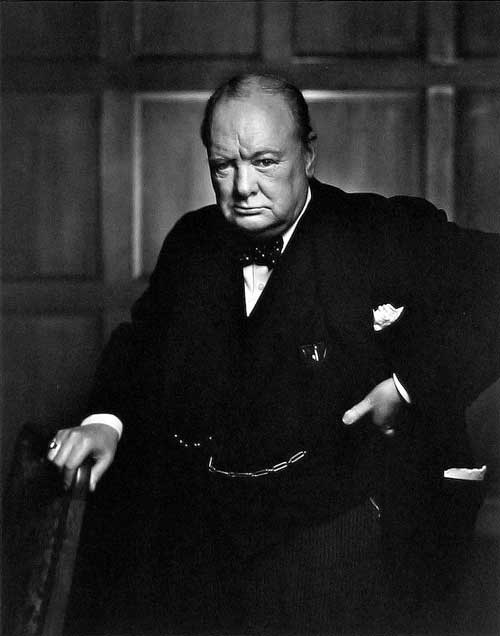
Recently I happened upon some criticism, tinged with disappointment, about President Kennedy. Some people are apparently astonished that he prepared for, indeed rehearsed, his outstanding televised press conference performances.
The disappointment arises from the belated recognition that Kennedy’s wit was not always spontaneous. Therefore, the thinking goes, it’s less impressive a feat. Somehow, preparation must be seen as a kind of “cheating.”
My reaction: Huh?
Leaders Rehearse Important Performances
Leadership is performance art. Communications can be seen as the sinews binding all the other aspects.
Preparation is absolutely necessary, as in any endeavor. Even those who eschew preparation right before, say, a speech or meeting participation, have likely prepared in various ways over time. That they may not see it that way does not alter the reality.
Rehearsal is a focused, detailed level of preparation. It enables the actor—yes, we can use that word—to anticipate details. Those details go not only to stepping up to her marks. Most importantly, effective rehearsals include an outside evaluation. The latter can see things from a perspective closer to that of the ultimate audience.
The higher the level of service, the more that any verbal or non-verbal communication takes on significance. It’s no accident that so many effective leaders of large-scale enterprises or ideas have acting in their blood. World War II warlords Franklin Roosevelt, Winston Churchill, Adolf Hitler, and Charles de Gaulle were each accomplished as actors. They were keenly aware of the centrality of stagecraft to their statecraft. So, too, one notes the fascination that many public leaders–all the way to George Washington and Abraham Lincoln–harbored for the theater.
It’s often observed that Ronald Reagan was the first actor to become U.S. president. Yet this is manifestly untrue. Reagan was the first professional actor to become president.
Why Rehearsal Matters
Rehearsal encompasses various elements:
—It can include a retrospective element, reviewing one’s prior performances or those of others one would learn from.
—It can ease moving into visualizing of the role. Visualizing, at its best, can be magical, transporting one’s whole being toward the ideal conjured.
—It can encourage spontaneity. This might seem contradictory at first glance; wouldn’t rehearsal be the antithesis of spontaneity? Not really. Rehearsal can remove one’s attention from non-essential items, move the performance into a place where the performer can give more attention to his audience. This is the place where the intensity of performance can be adjusted, or other improvisations made, reflecting the signals being sent from the audience as it responds in real-time.
—It can enable authenticity. This, too might appear contradictory. Authenticity is about being the author of one’s own performance. Methodical rehearsal can take one there.
—Ultimately, effective rehearsal can efface self-consciousness. The ideal is audience consciousness, where the actor becomes one with the audience in the moment of performance. A paradox: the more that the performer prepares, practices, the more that she can be liberated from the limitations imposed by too great a focus on themselves.
Perfect Practice Makes Perfect Performance
As a professional speaker, I’m keenly aware that most of the important preparation for an engagement occurs well before the event. Ideally, the performance will be so seamless that the audience will think it natural, inevitable.
Extensive preparation enables one to achieve Ronald Reagan’s credo: Make it look easy.
As in so many things, greater preparation can yield polished products. Where many words may have been initially thought necessary, extensive preparation may yield a succinct phrase that can be passed along through space and time….. Never, never, never give in….
Winston Churchill’s preparation was extraordinary. His drafting and redrafting, his experimenting with sounds and sequence, his management of his vocal performance, and his attention to his clothing and setting were legendary.

If Churchill took such pains, who are you not to?
What Do You Rehearse?
Many people don’t think to rehearse for their leadership performances. Some may not recognize that a presentation to an internal business meeting is a leadership performance. Or they don’t think that they need practice in making a sales presentation, having done so many before. They may not think of a one-on-one conversation with a higher-up, or an employee down the line, as a performance worthy of extensive preparation.
Any high-stakes communication should be regarded as a performance meriting preparation.
If it’s important, it’s important to prepare.
Don’t wait for your moment to speak to a massive audience to apply your best possible preparation. Begin now.
And don’t limit your rehearsals to work. What about important communications guiding relationships with family and friends? Don’t they merit extensive thought and planning?
The key is to focus on your audience. It’s not about you. If you’re serving others, you must do all you can to ensure that your communication is effective from their point of view.
As with anything else, good intentions, focusing on your inputs, are beside the point. It’s about outputs, results as evaluated by those you’re serving.
Rehearsing Leadership
Rehearsing for specific performances can set the stage for assuming ever-greater leadership roles. The ongoing learning and improvement of practiced performance can set the stage for personal transformation.
It’s no accident that consequential leaders who took pains over their performances transformed themselves in the process. One follows from the other. Among American presidents, George Washington, Abraham Lincoln, Theodore Roosevelt, Franklin Roosevelt, Dwight Eisenhower, John Kennedy, Ronald Reagan, and Bill Clinton each exemplify this.
Anyone who is serious about serving by leading, will begin to re-create their persona in this process. In the doing, they begin to reflect aspects or desires or needs of those they would serve. As a result, they may well be ready to serve—and be recognized as valuable—when a moment of truth arises.
Are you rehearsing for your leadership moment?
Rehearsing Leadership
